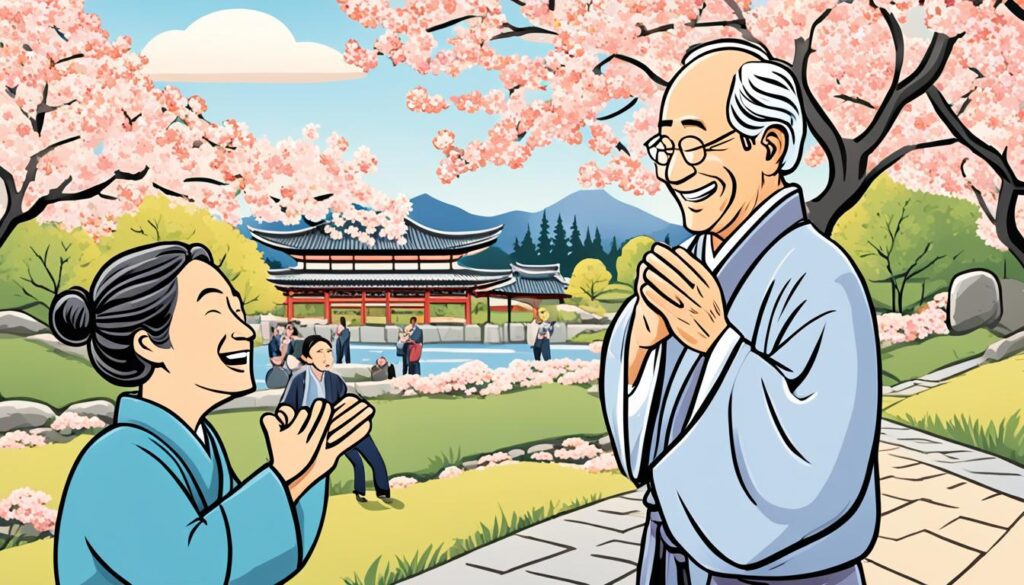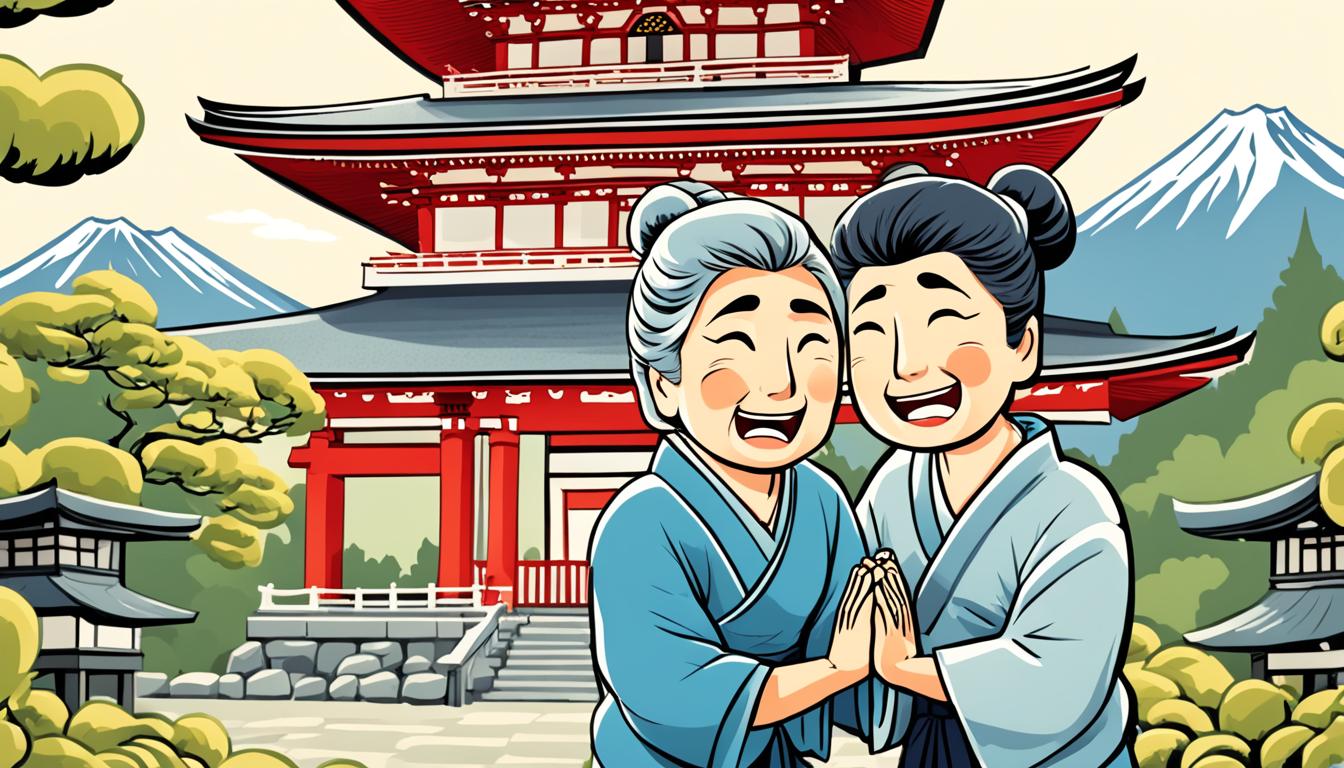Are you planning to meet someone in Japan? Knowing the appropriate Japanese phrases for meeting someone is essential for effective communication. In this article, we will explore the various ways to express the idea of “let’s meet” in Japanese and provide you with the necessary grammar and pronunciation guidance.
Mastering these phrases will not only help you initiate plans to meet someone but also enable you to navigate different social situations with confidence. Let’s dive in and discover the fascinating world of Japanese greetings and expressions!
Meaning and Grammar
In Japanese, there are several phrases you can use to express the idea of “let’s meet.” The two common and versatile phrases are “会いましょう” (aimashou) and “会おう” (aou). Both phrases essentially translate to “let’s meet” and can be used in both formal and informal situations when making plans to meet someone.
It’s important to note that the Japanese language has different levels of politeness. The appropriate phrase to use may depend on the context and the relationship you have with the person you are speaking to. Understanding the grammar and nuances of these phrases will allow you to communicate effectively and show respect to the Japanese culture.
How to Pronounce and Equivalent Words
Let’s learn how to pronounce these phrases correctly:
- “会いましょう” (aimashou) is pronounced as “ah-ee-mah-show.”
- “会おう” (aou) is pronounced as “ah-oh.”
While there are no direct equivalent words for these phrases in English, they can be translated as “let’s meet” or “let’s get together.” These phrases convey the same idea of arranging a meeting with someone.
Writing in Kanji
The phrases “会いましょう” (aimashou) and “会おう” (aou) can also be written in Kanji characters:
- “会いましょう” can be written as “会いましょう” or “逢いましょう.”
- “会おう” can be written as “会おう” or “逢おう.”
Learning the Kanji form of these phrases can be beneficial if you want to deepen your understanding of the Japanese language and culture.
Contextual and Cultural Usage of the Phrases
Greetings and respectful expressions play a crucial role in Japanese culture. When meeting someone for the first time or in formal situations, it’s essential to use polite language to show respect. The phrases “会いましょう” (aimashou) and “会おう” (aou) can be used in both formal and informal contexts, making them versatile for various social interactions.
However, it’s important to gauge the level of formality and choose the appropriate phrase based on your relationship with the person you are meeting. Using these phrases correctly will not only help you make a positive impression but also demonstrate your politeness and cultural awareness.
Now that you’ve learned how to say “let’s meet” in Japanese, you’re ready to embark on your journey of effective communication in Japan. Practice these phrases and immerse yourself in the rich Japanese culture, and you’ll soon be connecting with people with ease!
Essential Japanese Phrases for Introductions
When introducing yourself in Japanese, there are a few key phrases you should know. One common phrase is “こんにちは。わたしは [name]です” (Konnichiwa. Watashi wa [name] desu), which translates to “Hello. My name is [name].” It’s polite to include your name when introducing yourself in Japanese. Another important phrase is “はじめまして” (Hajimemashite), which means “Nice to meet you.” This phrase is typically used when meeting someone for the first time.
Additionally, you can use phrases like “どうぞ よろしくお願いします” (Dozo yoroshiku onegai shimasu) or “お会いできてうれしいです” (O-ai dekite ureshii desu), which express a desire for a good relationship and show respect to the person you are meeting.
Feel free to use these phrases when introducing yourself in Japanese to create a positive impression and establish a good rapport with others.
Japanese Greetings for Different Situations

In Japanese culture, greetings play a significant role in social interactions. Depending on the time of day and the situation, different greetings are used to convey politeness and respect.
When starting the day, a common greeting is “おはようございます” (Ohayou gozaimasu), which means “Good morning.” This phrase is used to greet someone in the morning and create a positive atmosphere for the day ahead.
In the afternoon, “こんにちは” (Konnichiwa) is often used to say “Hello.” This greeting is suitable for any casual encounter during the day and is widely recognized in Japanese conversations.
In the evening, “こんばんは” (Konbanwa) is used to greet someone and wish them a “Good evening.” It is a polite way to initiate conversation during the later hours of the day.
Another important greeting in Japanese culture is “いらっしゃいませ” (Irasshaimase), which is used when entering a room. This phrase is commonly heard in restaurants, shops, and other establishments to welcome customers. It expresses the notion of “Welcome” and sets a friendly tone for the interaction.
Mastering these greeting phrases is essential for engaging in Japanese conversations and showing respect to others. By using the appropriate greeting for each situation, you can create a positive environment and establish a strong connection with those you interact with.
Expressing Politeness and Respect in Japanese
When meeting someone for the first time in Japan, it is crucial to use polite language to show respect and make a positive impression. Along with the common phrase “はじめまして” (Hajimemashite), which means “Nice to meet you,” there are several other expressions you can use to convey politeness and respect.
One such phrase is “よろしくおねがいします” (Yoroshiku onegai shimasu), which can be roughly translated as “Please be kind to me.” This expression is often used when introducing yourself and indicates that you are eager to establish a good relationship with the person you are meeting. It expresses a sense of respect and humility.
Another way to express happiness or honor in meeting someone is by using the phrases “お会いできてうれしいです” (O-ai dekite ureshii desu) or “お会いできて光栄です” (O-ai dekite kouei desu). Both of these expressions convey a sense of joy and honor in the opportunity to meet the person, further emphasizing your respect and appreciation.
By incorporating these phrases into your conversations, you demonstrate cultural awareness and etiquette, leaving a lasting impression on the person you are meeting with. It is important to remember that using polite language is highly valued in Japanese culture, particularly when meeting someone for the first time.
| Phrase | English Translation |
|---|---|
| よろしくおねがいします | Please be kind to me |
| お会いできてうれしいです | I’m glad to meet you |
| お会いできて光栄です | It’s an honor to meet you |
Informal Japanese Expressions for Making Plans
When it comes to making plans in a more casual setting, it’s useful to know some informal Japanese expressions. If you want to suggest meeting up with someone, you can use the phrase “会いましょう” (aimashou), which translates to “Let’s meet.” Another option is “会おう” (aou), which conveys the same meaning. These expressions are commonly used among friends or acquaintances when making casual plans.
It’s important to consider the level of formality and your relationship with the person you are speaking to when deciding which expression to use. If you are unsure, it’s always safe to go with a more polite phrase. However, using these informal expressions can help create a friendly and relaxed atmosphere in your conversations.
Remember, Japanese language has different levels of politeness, so choosing the appropriate phrase is crucial. Whether it’s “会いましょう” (aimashou) or “会おう” (aou), these expressions will allow you to confidently suggest meeting up with someone in a casual manner.

